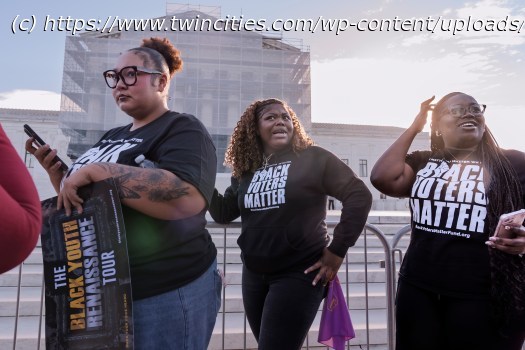Section 2 of the Voting Rights Act is the primary way plaintiffs can challenge racially discriminatory election practices. The Supreme Court on Wednesday is hearing arguments in a Section 2 case out of Louisiana.
Voting rights activists were relieved in 2023 when, in a surprise to some, the Supreme Court upheld the most important remaining element of the Voting Rights Act.
The ruling forced Alabama and later Louisiana to redraw their congressional maps to give Black residents greater representation, moves that eventually sent two additional Black lawmakers to Washington.
Two years later, the Voting Rights Act’s Section 2 is before the court again. This time, it’s a rehearing of a Louisiana lawsuit over the state’s redrawn congressional map in a case that revolves around the same part of the 60-year-old law.
At the heart of Wednesday’s arguments lies a simple question, and one with potentially far-reaching consequences: Will the court, with the same lineup of justices who decided the 2023 case, change its mind about the landmark law?
Section 2 is the primary way plaintiffs can challenge racially discriminatory election practices. For nearly 50 years, a companion part of the law, Section 5, required certain states and counties with a history of discriminatory voting practices to get federal review before changing their election rules. Most of those places were in the South.
In 2013, the Supreme Court issued a 5-4 decision in a case known as Shelby v. Holder that removed the preclearance requirement in the Civil Rights-era law. States that had been under its jurisdiction began announcing changes to their election and voting laws, most of them restrictive.
That accelerated in Republican-controlled states after President Donald Trump began lying about his loss in the 2020 election, falsely claiming it was due to widespread fraud.
A decision against Section 2 would largely neuter the Voting Rights Act, said Binny Miller, a law professor at the American University.
“When Section 5 existed, it caught a lot of the problems that would have turned into Section 2 litigation,” he said.
Without those two pillars of the law, plaintiffs would have a much harder time challenging new voting restrictions. Instead, they would have to prove that lawmakers intended to discriminate.
Louisiana’s Republican-dominated Legislature drew a new congressional map in 2022 to account for population shifts reflected in the 2020 census.






